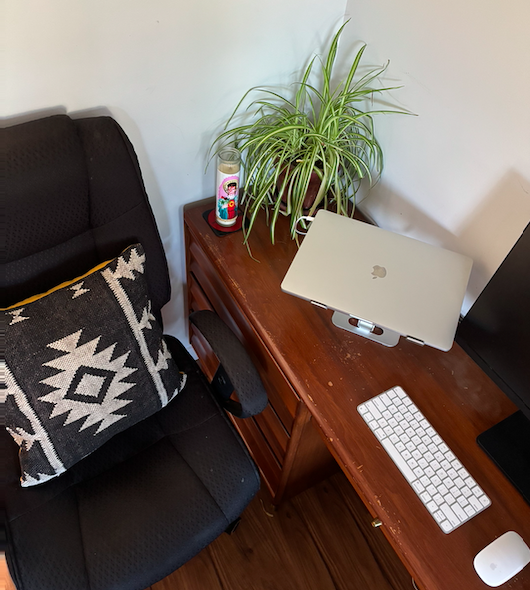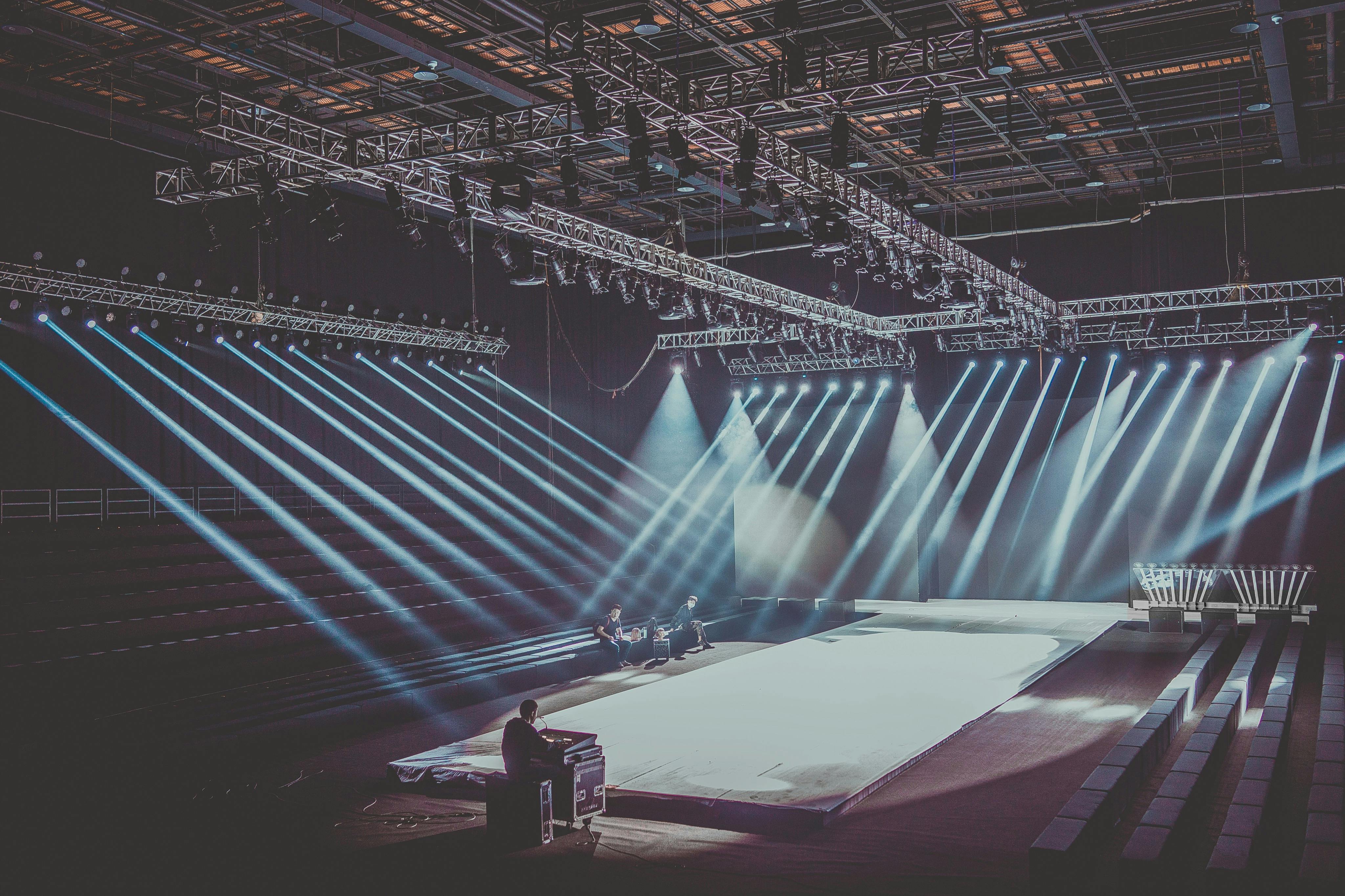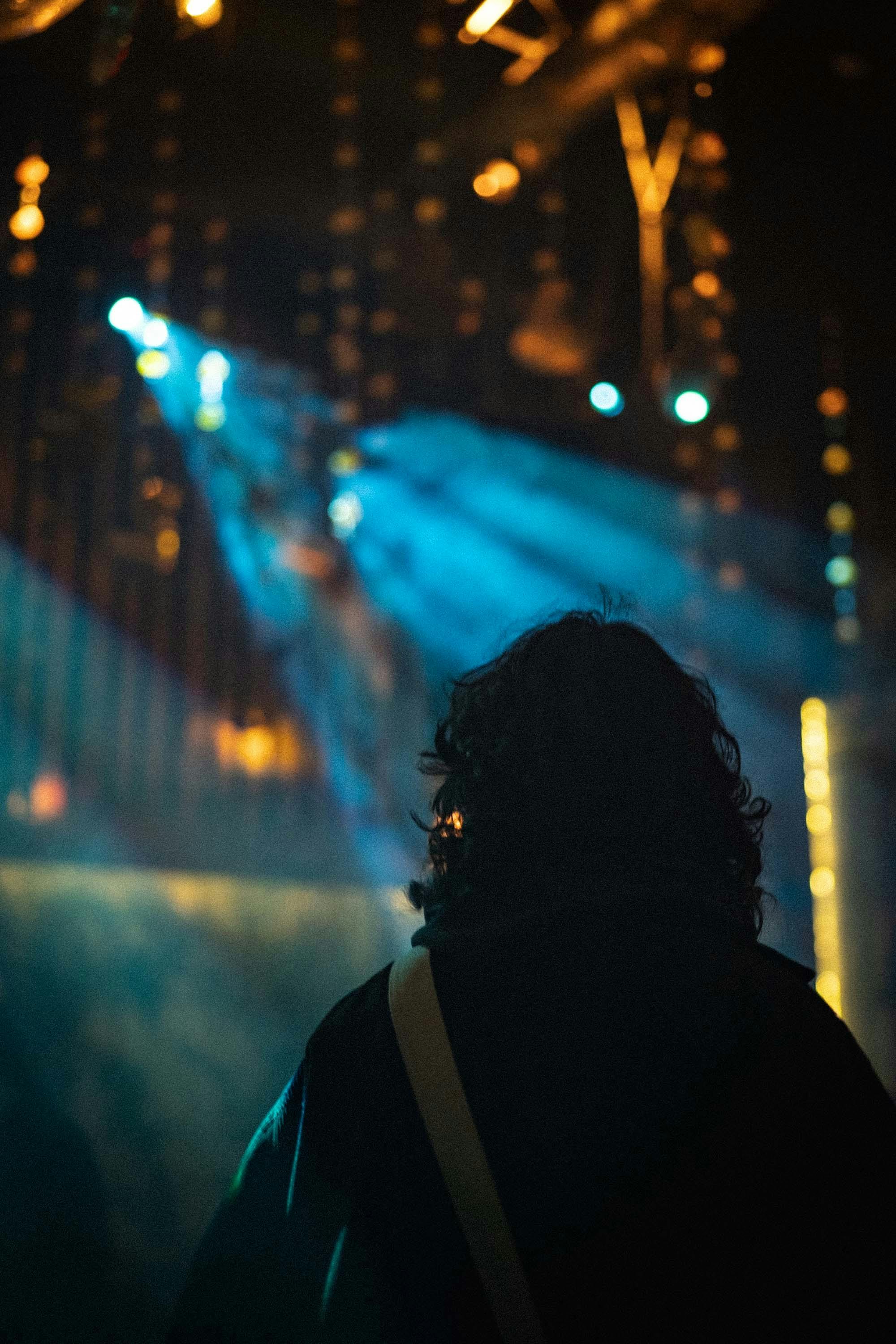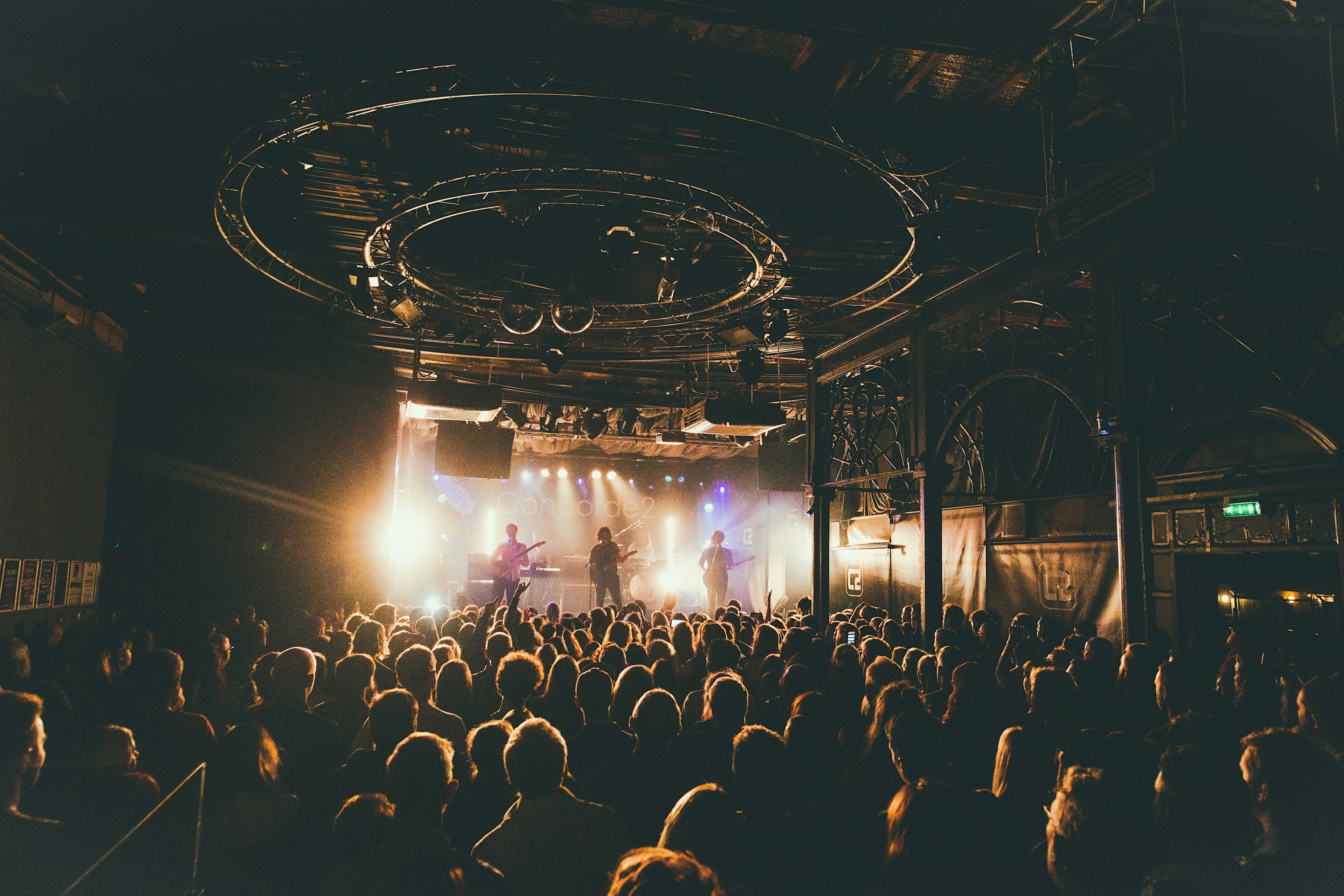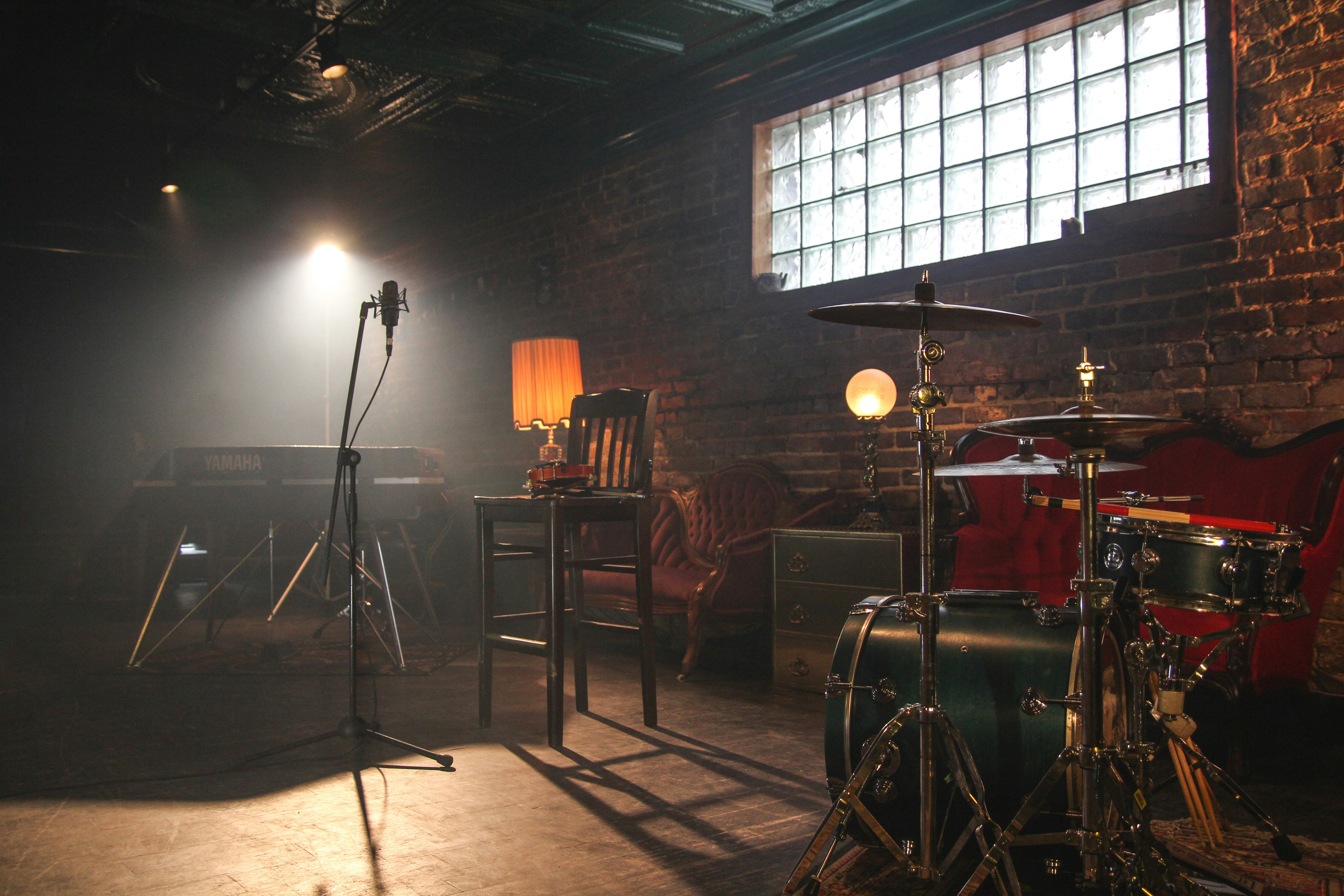So you wanna work in live music but your resume looks like a grocery list? No worries friend, we’ve all been there. Whether you’ve got experience or not, there is a way to make your resume stand out.
In this blog post, I’ll walk you through beginner-friendly tips for building a music industry resume and how to actually start connecting with the right people without feeling like you’re cold-DMing your way into oblivion. Let's make your passion for music look polished on paper. Ready? Let’s go:
Did you know that 85% of people working in the music industry report higher job satisfaction compared to other industries? (Music Industry Careers, 2020 if you're curious). Whether you’re dreaming of working festivals, concerts, or full-on tours, getting your foot in the door usually starts with one thing: a solid resume.
But here’s the good news: You don’t need years of experience or backstage connections to get started. Everyone starts somewhere. You can build a beginner-friendly resume that highlights your love for live events and shows that you’re serious about the work, even if you’re just getting started. Let’s walk through how to build a resume that stands out and how to start networking without the cringe.

1. Start With a Clean, Modern Layout
First impressions matter, especially when you’ve got just a few seconds to catch someone’s eye. Keep your resume clean, simple, and easy to read. Use professional fonts like Arial, Calibri, or Helvetica, and don’t be afraid of white space, it makes everything easier on the eyes.
Pro Tip: Grab a template from Canva, Google Docs, or LinkedIn. It’ll save you time and make everything look polished, even if graphic design isn’t your thing.
2. Add a Strong Personal Profile (Totally Optional, but Helpful)
This is your chance to give a little snapshot of who you are and what you’re about. A short personal profile or career objective can go a long way in showing what drives you.
Example: Enthusiastic and dedicated individual passionate about live event production. Seeking entry-level opportunities to gain hands-on experience in festival coordination and concert production. A fast learner with a positive attitude and a team-player mindset.
3. Highlight Any Relevant Experience (Even Volunteer or Part-Time)
If you don’t have professional music experience yet, it's all good my friend. Pull from anything that shows you’re responsible, organized, and ready to be part of a team. Transferrable skills are key here. That could be a part-time job, a volunteer gig, or a school project that involved planning or logistics.
Example:
Production Assistant Intern
Summer Music Festival, City, State
June 2023 – August 2023
• Assisted with stage setup, sound equipment, and lighting for a 3-day music festival
• Coordinated artist needs and kept things running on time
• Got hands-on experience with event production, logistics, and artist relations
Pro Tip: Customer service and team-based roles are gold here. They show you know how to handle pressure and work with all kinds of people, both are crucial in live events.
4. Spotlight Skills That Matter in Live Events
The music industry cares more about what you can do and how you show up than what’s on paper. Add a skills section to your resume that highlights things you’ve picked up, even outside of work.
Skills to consider including:
Event Coordination
Customer Service & Communication
Time Management
Problem Solving
Technical Knowledge (audio or lighting basics)
Social Media Marketing (Instagram, TikTok, etc.)
5. List Any Relevant Education or Training
You don’t need a music degree, but if you’ve taken any courses that relate to events, marketing, production, or music, include them. Online courses absolutely count too.
Example:
Bachelor of Arts in Communications
University of Music City, 2023
Relevant Coursework: Event Planning, Marketing for Musicians, Sound Engineering Basics, etc.
or
Courses:
• The Art of Live Events: Concert Collective
• Event Planning 101: Company Name
• Live Sound Production: Company Name
Pro Tip: Even short courses can give you a leg up and show you're committed to learning.
6. Show Your Passion for Music and Events
This industry runs on passion. If you’ve worked on a side project, started a blog, helped a friend throw a local gig, or created content around music, or if you're a musician yourself then include that too. It tells people you’re in this because you love it.
Example:
Founder, Music Lovers Blog
Created a blog reviewing live performances and highlighting new artists
Managed content creation, ran social media, and built an engaged online community
7. Keep It Short and Sweet
When you’re just starting out, stick to a one-page resume. Focus on what’s most relevant to the role you’re applying for. It’s not about listing everything you’ve ever done, it’s about showing how what you have done connects to live events.
Bonus Tip: Tailor your resume for each job. If you're applying for a street team or volunteer spot at a festival, emphasize teamwork and communication. If you're going for a production assistant gig, focus more on logistics and coordination.
Sample Entry-Level Resume Summary:
[Your Name]
[Your Contact Info: Email, Phone, LinkedIn]
Objective:
Energetic and driven individual eager to build a career in live event production. Looking to apply strong organizational and communication skills from volunteer and part-time roles. Passionate about live music and creating unforgettable experiences.
Experience:
Volunteer Event Coordinator
City Music Festival, City, State
June 2023 – August 2023
• Helped with event setup, crowd management, and artist coordination
• Managed ticketing and answered customer questions throughout the weekend
Skills:
Event Coordination & Logistics
Customer Service & Communication
Social Media Marketing (Instagram, TikTok)
Team Collaboration
Building your first resume for the music industry doesn’t have to be intimidating. Keep it simple, focus on your strengths, and let your passion come through. You don’t need to have worked a 50-show tour to prove you’re ready. What matters most is that you show up, stay reliable, and stay open to learning. The industry is always looking for people who bring the right energy. Let your resume and networking opportunities reflect that, focus on what you do have, lean into your love for live music, and keep putting yourself out there both online and in real life.
And if you're not sure where to start, that’s exactly why I created Concert Collective. We’re here to help you make sense of the behind-the-scenes world of live events with tools that are actually useful. One resume, one show day, or one message at a time.
-Steph

